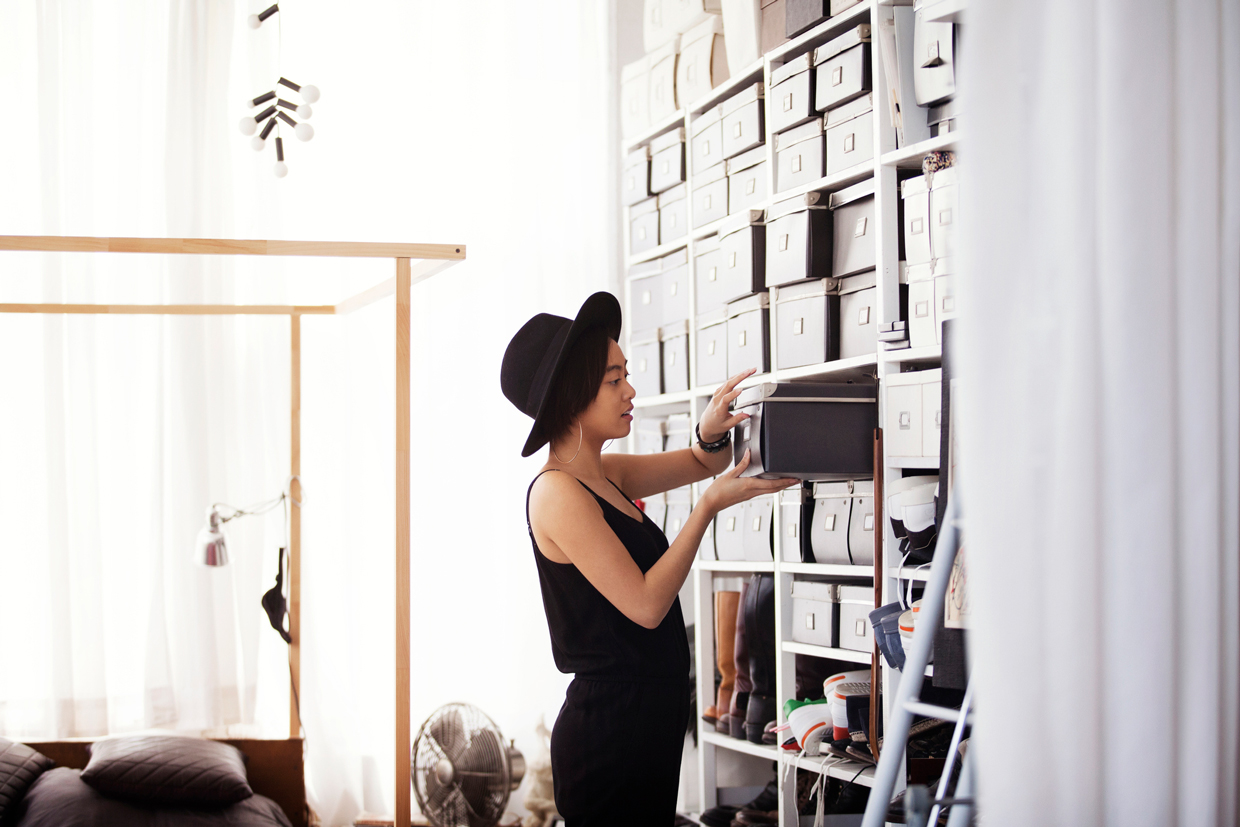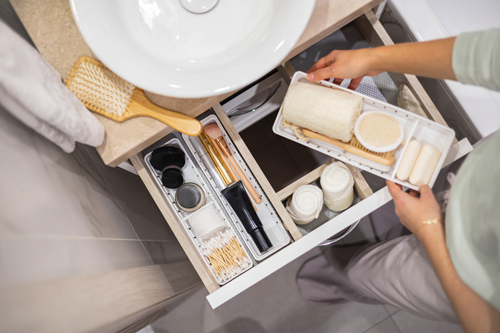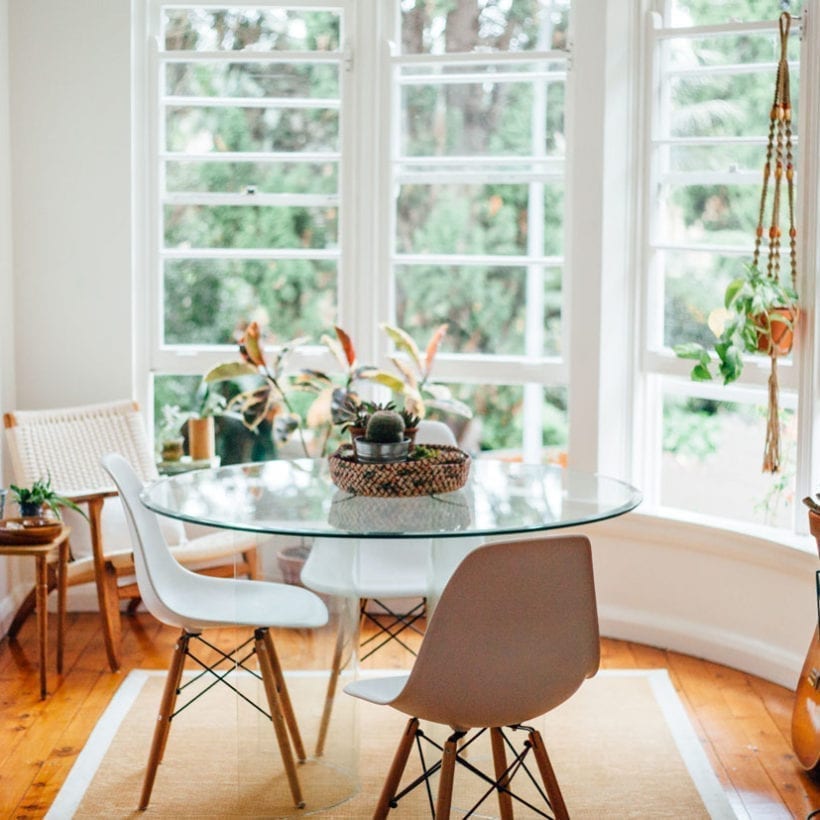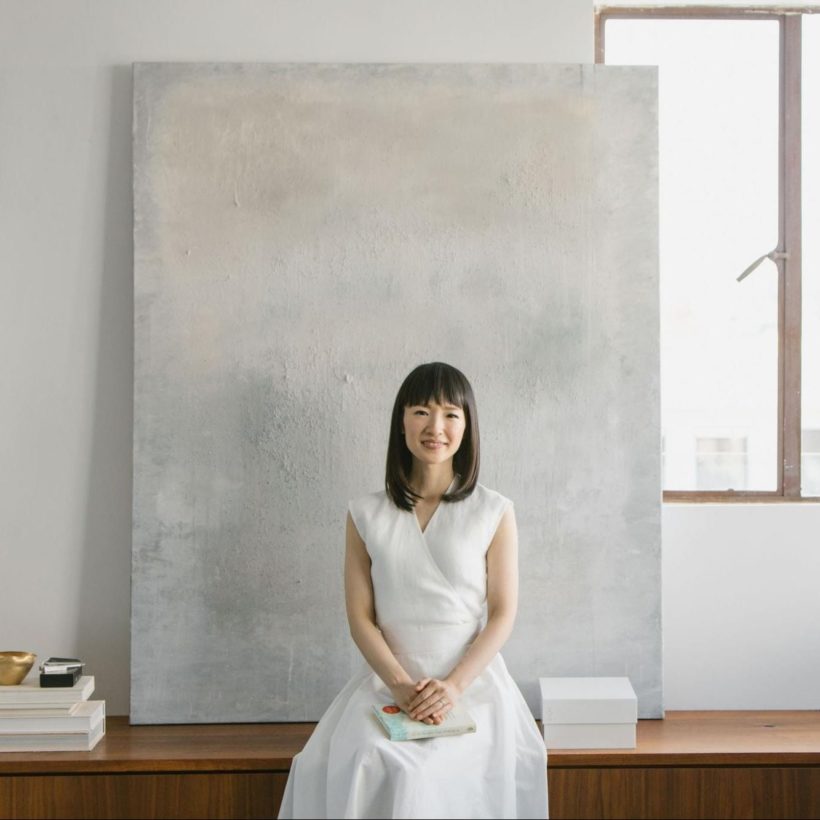Do you ever open up your closets and drawers and think, “When and how did I accumulate so much stuff?” A survey done by the National Association for Professional Organizers (NAPO), in partnership with Decluttr, found that 54% of Americans are overwhelmed by the amount of clutter that they have.
Clutter not only physically takes up space in our homes, but can also have negative effects on our mental state. For starters, it has the ability to cause raised stress levels and to act as a distraction. Decluttering, on the other hand, has the opposite effect — not only can getting organized work wonders for aesthetics but it can also help improve overall well-being.
Ana Sokolovic
is a psychotherapist.
Devin VonderHaar
is a professional organizer and owner of The Modern Minimalist.
Meet the Experts
Read ahead to learn more about how decluttering can improve your mental health and some easy ways you can get organized. It may just be the extra motivation you need to finally get around to that spring cleaning you’ve been putting off.
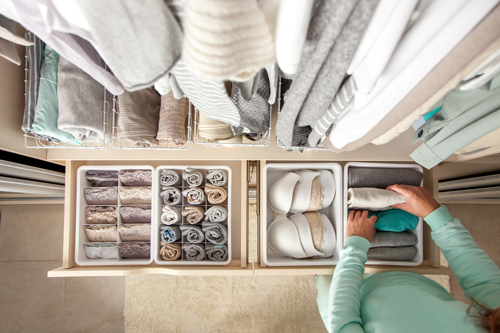
Why do some people have more clutter than others?
My boyfriend is a minimalist who is able to fit all of his belongings into one closet (how!?), whereas I have a whole section of my closet shelves dedicated to old travel and event tickets. According to psychotherapist Ana Sokolovic, some people may accumulate more clutter because they assign meaning or emotional value to items, therefore making it more difficult for them to part with these pieces. I can attest to this as someone who cried when they finally decided to toss out their high school magazine collection. “Some items feel like a connection to a part of yourself,” she says, “Some feel like a connection to others, or to a moment in time that you wish to keep.” Sokolovic cites a 2012 research study by the Yale School of Medicine that found that those living with hoarding tendencies showed more activity in the two regions of the brain associated with pain and conflict when asked to keep or toss their belongings. “There is a mental and physical ache in letting go of an object that has emotional value to you,” she adds.
Devin VonderHaar, a professional organizer and owner of The Modern Minimalist in Portland, Oregon, explains that when clutter gets out of hand it may be a reflection of someone’s current mental landscape and may even be the first sign of an imbalance in another area of their lives. “For many of my clients, growing up with a parent with severe disordered or hoarding tendencies meant that a chaotic space was comfortable,” explains VonderHaar. Because of this, there is a “natural tendency” to recreate that same disorder in their environment even if it makes them feel anxious or stressed. “They also likely never learned the skills necessary to change the behavior,” she adds.
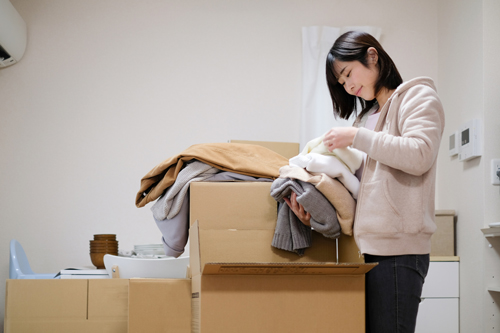
How clutter negatively impacts mental health
For starters, it can be hard to handle the stress of everyday life when our homes are in disarray. “A study in Personality and Social Psychology Bulletin found that women who describe their households as cluttered show increased fatigue and depression with correlating high cortisol levels,” says Sokolovic.
Unfortunately, it doesn’t end there: The effects of living with clutter can branch out into many different areas of our lives. VonderHaar shares that living with clutter can cause shame when having people over and can make it harder to find items around the house when we need them. Clutter can even be detrimental to our careers as well as our relationships. “In terms of work and career, clutter creates a lack of focus that can impact work and lead to depression, severe anxiety, and other conditions,” says VonderHaar. “And, couples that have a cluttered individual in the relationship experience conflict over their behavior.”
How decluttering can improve mental health
The good news is that decluttering can be just as impactful to our mental health, but in a positive way. Sokolovic shares that a study by the Princeton University Neuroscience Institute found that people exhibit better moods, are more productive and have more focus when their surroundings are organized. Also, according to The Sleep Foundation, visual clutter in your room can cause stress which in turn can make for restless sleep. In turn, tidying up your bedroom can help you sleep better at night — getting an adequate amount of high-quality sleep has been shown to help lessen anxiety and improve overall well-being.
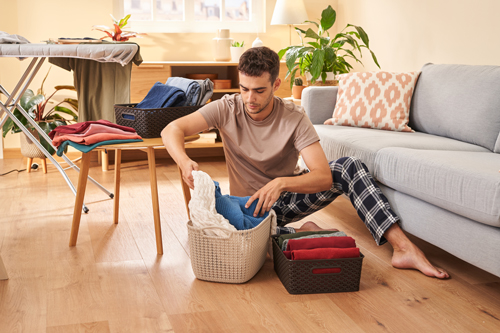
“By decluttering, we minimize the number of stimuli our brain needs to handle while performing tasks at home,” she says, “We are helping our brain manage distractions.” This all, in turn, leads to a boost in self-esteem and a feeling of self-control over life.
Simple ways to get organized
Getting our surroundings in order may feel like a mammoth task, but there are simple ways to integrate organization into our everyday lives:
Start Small
Sometimes the easiest way to get something done is to start very small. For example, VonderHaar shares that you can ease into decluttering by setting a timer for 30 minutes and tackling a small space, such as a drawer in your vanity. “Turn this into a weekly habit, then slowly stack more time and larger areas,” she explains. This method will also allow you to create healthy routines that will help you better manage clutter before it becomes too overwhelming.
Reach Out for Support
When it comes to getting your home in order, you don’t have to do it alone. For example, VonderHaar suggests enlisting an accountability partner to help you along the way, or calling in a professional if you reach a roadblock. If you notice that you are particularly struggling with getting rid of items because of attachments, Sokolovic recommends talk therapy as a great resource. Of course, you can always also reach out to friends and family for advice and support during especially difficult organizing periods. “Sometimes a friend or a family member can help by holding your hand, hugging you, and staying present as you let go,” Sokolovic says.
Have Fun With It
Whether it’s by purchasing colorful hangers or picking up some interesting storage containers from the store (we love these options by HAY), injecting a bit of excitement and design into organizing might help you look forward to tidying.
Keep the End Goal in Mind
Focus on items that you may not have much of an attachment to. “This does not mean you will feel no discomfort in getting rid of them,” says Sokolovic, “What is important is that the discomfort is bearable.” Determine your goal: Are you trying to donate old clothes so you can make room for new ones? Are you cleaning out a room to create space for a new baby? Or maybe you just want to tidy up before friends come over? Keeping these goals in mind can help you stay motivated and make the discomfort you may experience while organizing and paring down feel less overwhelming. “Once you are done with this first step, don’t forget to celebrate it,” Sokolovic adds, “Start attaching positive meaning to letting go.”
We only recommend products we have independently researched, tested, and loved. If you purchase a product found through our links, Sunday Edit may earn an affiliate commission.
